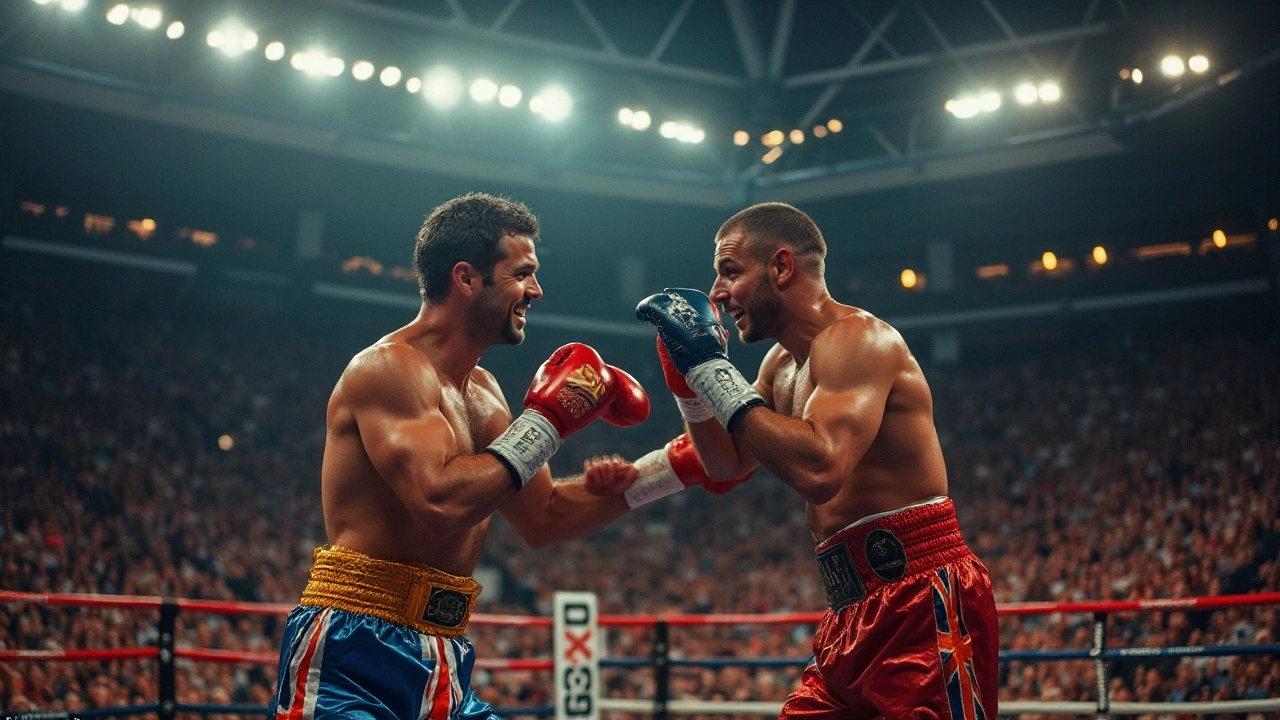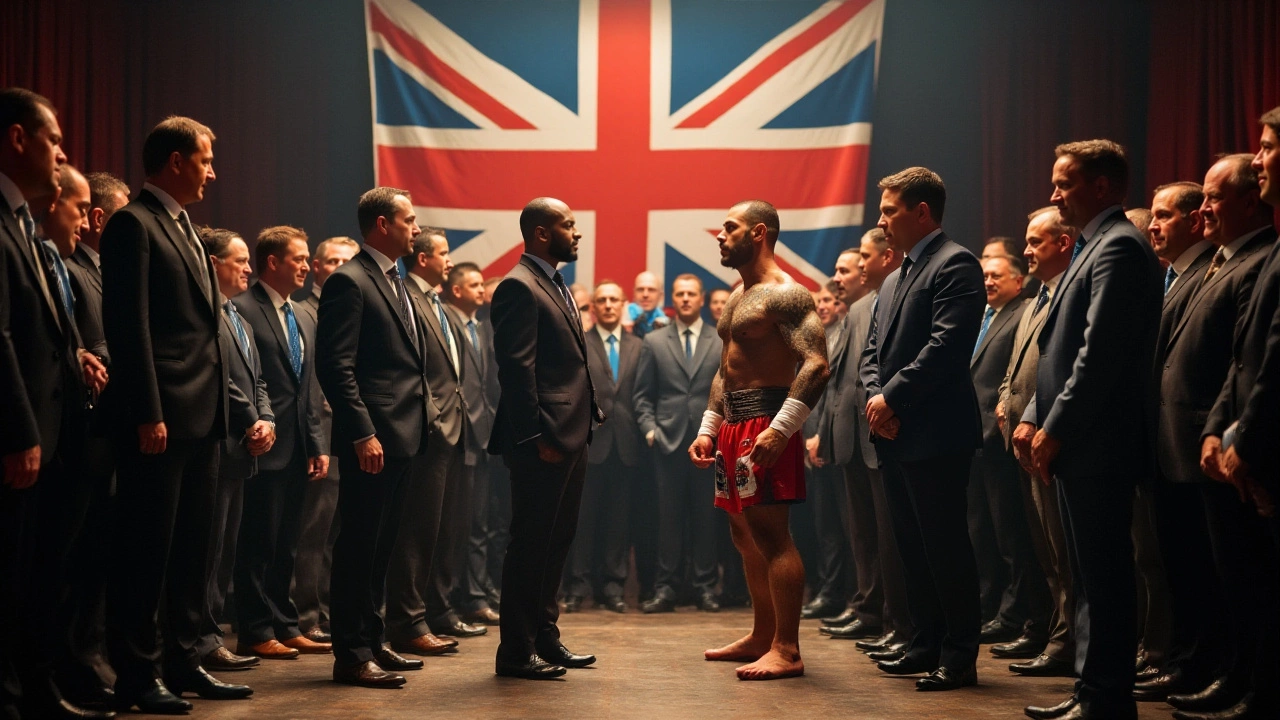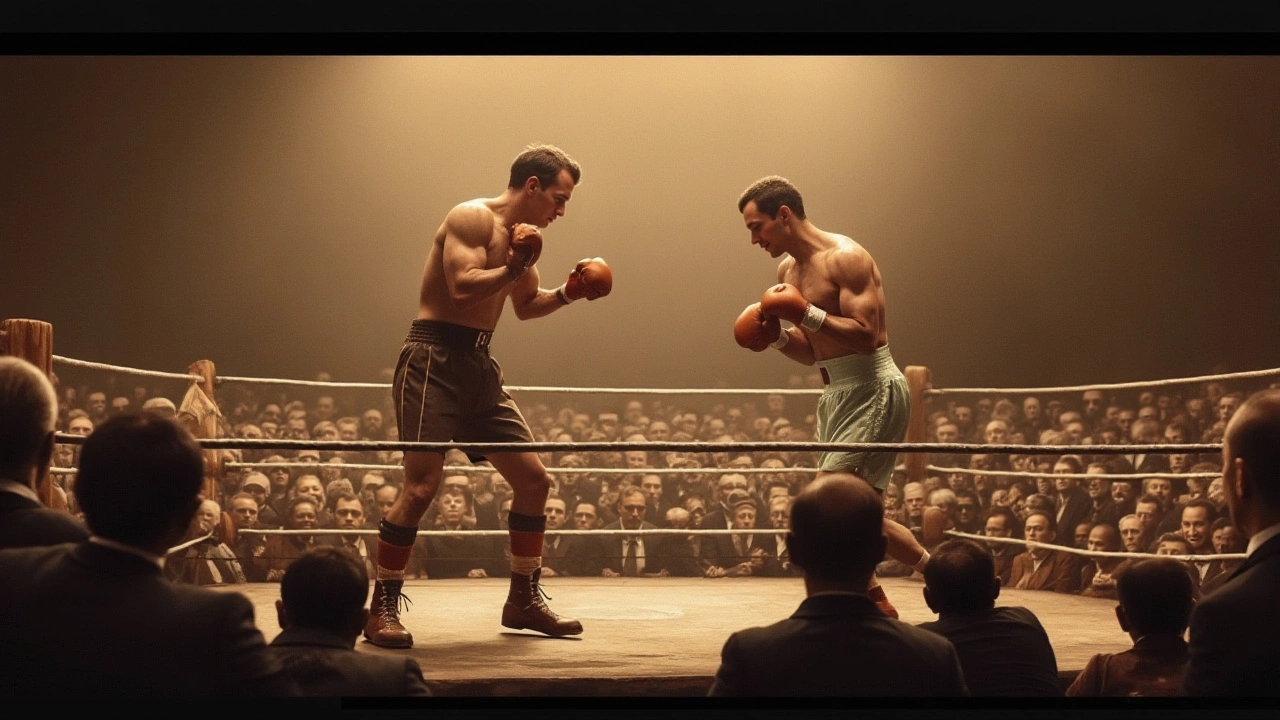
Boxing Matches January 16, 2025
Understanding Title Matches in Boxing: A Comprehensive Guide
Boxing title matches stand as the crowning jewels of the sport, captivating audiences around the globe with their intensity and high stakes. When fighters step into the ring for a title match, they are not just battling for victory but for the honor of holding a prestigious championship belt. These bouts have long been celebrated for their drama and excitement, with fans eagerly following every punch and maneuver.
Understanding what makes a title match distinct requires a look into its history and the rules that define it. These matches are steeped in tradition, with a lineage of legendary fighters etching their names into history through epic battles. Every title match carries with it a legacy that extends beyond the ring, influencing the culture and future of boxing.
- Overview of Boxing Title Matches
- History of Title Matches
- Rules and Regulations
- The Significance of Being a Champion
Overview of Boxing Title Matches
Title matches in boxing are the pinnacle of the sport, gathering the best talents in the ring to compete for honor and recognition. Historically, these bouts have drawn millions of spectators, both in arenas and through broadcast media, symbolizing not only the culmination of an athlete's hard work but also the rich tapestry of the sport's traditions. The excitement generated by a title match is unparalleled, as fans get to witness elite boxers clash in a test of skill, stamina, and strategy. With every match, there is a story waiting to unfold—from the underdog's unexpected triumph to the seasoned champion's determined defense of their title. It is this narrative quality, combined with athleticism, that makes title matches so engaging.
Boxing title matches are governed by stringent rules and regulations, typically overseen by major sanctioning bodies such as the WBC (World Boxing Council), WBA (World Boxing Association), IBF (International Boxing Federation), and WBO (World Boxing Organization). These organizations ensure fairness and uniformity, setting standards for everything from weight classes to equipment used during the match. It's fascinating how these entities have developed to elevate the sport's integrity and competitive balance. In fact, each organization often has its own championship belt design, adding uniqueness to the titles boxers strive to attain. A curious fact about title matches is that boxers are often expected to follow a rigorous pre-match protocol. This involves medical examinations, weigh-ins to ensure they meet the weight class requirements, and a series of promotional events where they face off with their opponents outside the ring.
Title matches are not just physical battles; they are psychological ones too. Often, spectators witness the art of psychological warfare, where combatants attempt to outwit each other through mind games, adding an additional layer of complexity to the matches. These bouts require immense mental preparation alongside physical training. According to legendary boxer Muhammad Ali, self-belief is paramount, "To be a great champion, you must believe you are the best. If you’re not, pretend you are." This quote underscores the mental strength required to succeed in such high-pressure environments. For many boxers, winning a title match solidifies their legacy, etching their names in the annals of boxing history. The victory brings not only a shiny belt but also increased visibility, sponsorships, and opportunities. It's no surprise that athletes pour their hearts and souls into training for these events, understanding the transformative potential a title match victory can have on their careers.

History of Title Matches
The origins of the boxing title match hark back to the late 19th century, a time when the sport was establishing itself beyond the bare-knuckle brawls of the past. As boxing evolved into a more structured competition, the urge to quantify excellence became apparent, giving birth to the concept of title matches. John L. Sullivan, known as the last bare-knuckle champion and the first gloved heavyweight champion, marked a pivotal turn in the history of boxing. His reign during the 1880s set a precedent, demonstrating the allure and prestige attached to championship bouts. Transitioning from informal challenges to organized fights underscored the shift in public perception, recognizing these events as spectacles that demanded official records.
Throughout the early 20th century, title matches grew in prominence, encapsulating the essence of national pride and personal glory. The era of Jack Dempsey and later Joe Louis brought about unprecedented attention to the sport. Dempsey's explosive style in the 1920s and Louis's quiet determination in the 1930s transformed title fights into cultural phenomena. With the advent of radio and eventually television, these encounters were broadcasted to millions, solidifying their importance in the global sports landscape. Each heavyweight contest during this period was more than a fight; it was an event, reflecting the socio-economic contexts and the fighters' backgrounds, resonating with diverse audiences.
As notoriety of these matches burgeoned, so too did the stakes involved. The post-war era introduced icons such as Rocky Marciano and Muhammad Ali, whose bouts often transcended the ring. Ali's fights in the 1960s and 70s, including the famous "Rumble in the Jungle" and the "Thrilla in Manila," were not just about clinching the title match victories; they were narratives of resilience, political standpoints, and cultural significance. The latter decades of the 20th century saw these matches become increasingly commercialized. Conditions for title defenses became stringent, ensuring only the elite could compete.
"A champion is someone who gets up when he can't," once said Jack Dempsey, encapsulating the indomitable spirit required to dominate in title matches. This quote underscores the resilience and dedication entrenched in these athletes, driving their ambition and the excitement surrounding these bouts.
In the modern era, the rise of multiple boxing organizations such as the WBC, WBA, IBF, and WBO, has expanded the landscape of championship boxing. This proliferation presents both a boon and a challenge. While it offers fighters more opportunities to vie for a title, it also complicates the unified recognition of a singular champion. Recent decades have witnessed a resurgence in super-fights, with an emphasis on unifying belts across different organizations, elevating the significance of title matches once more. Stars like Floyd Mayweather, Manny Pacquiao, and the Klitschkos have captured global attention, perpetuating the storied tradition of title matches as not only physical contests but cultural touchstones.

Rules and Regulations
In the realm of boxing, title matches are governed by a distinct set of rules and regulations, meticulously crafted to ensure fairness and safety. These guidelines are vital, as they help maintain the integrity of the sport and the prestige associated with winning a championship. Unlike regular bouts, title matches are often subject to more stringent oversight. They require the presence of experienced referees and judges who are well-versed in the complex scoring systems. It's essential to understand that even slight deviations from established protocols can drastically impact the outcome of a match, underlining the gravity of adhering to these rules.
One of the critical elements of a title match is the number of rounds. Typically, these contests are scheduled for twelve rounds, each lasting three minutes, with one-minute intervals in between. This extended duration distinguishes title matches from non-title fights, which often consist of fewer rounds. The longer duration adds a layer of endurance and strategy, testing the fighters' stamina, skill, and mental fortitude. It's crucial for boxers to pace themselves, ensuring they can sustain their energy and performance throughout the match's entirety.
Another crucial aspect is the weight class regulations. Each title match is contested within specified weight divisions, ensuring a fair contest by matching opponents of similar physical stature. Fighters are required to meet the weight criteria set for their category during the official weigh-in, which typically occurs a day before the match. Exceeding the designated weight can lead to penalties or disqualification. This rule underscores the importance of discipline and preparation, as fighters often undergo rigorous training and dieting regimens to meet the weight standards.
The scoring system in title matches predominantly relies on the '10-point must system', a universally recognized method where judges score each round, awarding ten points to the round winner and a lesser score to the loser. The outcome of the match can be decided by a knockout, technical knockout, or by the judges' decision based on this scoring system. The precision of the scores and the experience of judges are pivotal, as close fights often hinge on these assessments. A widely respected voice in boxing, Teddy Atlas once remarked,
"Boxing is about earning respect and championship bouts are where respect is won and lost in the ring, marking legacies."
Title matches also entail stringent safety protocols and medical assessments. Before and after each bout, fighters undergo medical check-ups to ensure they're fit to compete and recover. Ringside physicians are present during the match, authorized to stop the fight if they deem it medically necessary, prioritizing the safety of the participants. The importance of these measures cannot be overstressed, as they safeguard the well-being of the fighters, allowing them to perform at their best while minimizing the risk of injury.

The Significance of Being a Champion
In boxing, being a champion symbolizes more than just technical mastery or power; it represents a remarkable journey of determination, discipline, and sometimes, redemption. The title of champion echoes beyond the ring into the realm of cultural iconography. Every great champion carries the legacy of past champions while also setting a new benchmark for future aspirants, inspiring countless athletes around the world. Through time, championship belts have become treasured possessions, signifying that the holder has faced and vanquished some of the most trying challenges in the sport.
Apart from the glory and recognition, being a champion brings immense responsibilities. The holder of a title must constantly prove their worth by defending their championship against any contender who presents a challenge. This constant defense ensures that the titleholder remains sharp, focused, and ever evolving in their tactics. The public scrutiny and media attention that follow champions is intense; every move, decision, and match is dissected for analysis. Yet, this attention also helps in creating a bond between the champion and their fans. It is a relationship built over challenging victories and, at times, heart-breaking defeats.
The financial rewards of being a champion cannot be ignored. Championship fights often draw massive audiences, translating into lucrative purses for the participants. The boxers at the pinnacle of their careers often reap significant financial rewards, leading to endorsements and sponsorships that solidify their status as household names. This economic impact broadens the reach of the boxing community, encouraging investment and interest in the sport. The prestige and honor that come with wearing a championship belt can also pave the way for a career beyond boxing, with champions frequently venturing into roles such as commentators, trainers, and even actors.
The late Muhammad Ali, reflecting on his illustrious career, once said, “It’s not the mountains ahead to climb that wear you out; it’s the pebble in your shoe.” These words encapsulate the dogged perseverance required to achieve and maintain championship status in boxing.The mental fortitude to push through adversity, stay motivated amidst distractions, and continuously refine techniques are all part of what makes champions revered figures in the sport. Aspiring boxers often look up to these individuals, drawing inspiration and courage from their stories.
To understand the significance of being a champion, consider the stages of preparation leading to a title match. Preparation is intense, encompassing not only physical conditioning but strategic planning and psychological readiness. Champions are often seen as tactical masterminds, able to read their opponents and exploit weaknesses effectively. With the right preparation, a champion’s performance in a title match can become legendary, a thrilling display of agility, strength, and precision that etches itself into the annals of boxing matches history.




